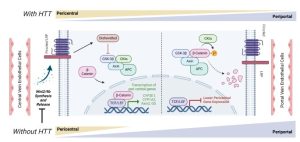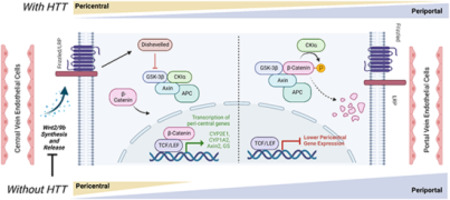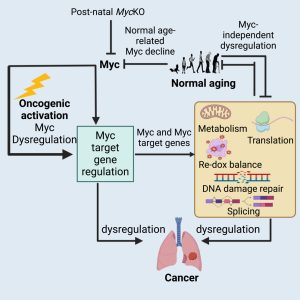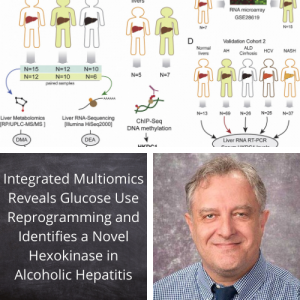
Dr. Paul Monga, MD., Director of PLRC, co-authored a publication in Life Science Alliance on the impact of Huntingtin gene loss on liver function, entitled “Huntingtin loss in hepatocytes is associated with altered metabolism, adhesion, and liver zonation”.
Bragg RM, Coffey SR, Cantle JP, Hu S, Singh S, Legg SRW, McHugh CA, Toor A, Zeitlin SO, Kwak S, Howland D, Vogt TF, Monga SP, Carroll JB. Huntingtin loss in hepatocytes is associated with altered metabolism, adhesion, and liver zonation. bioRxiv [Preprint]. 2023 Jun 26:2023.06.24.546334. doi: 10.1101/2023.06.24.546334. PMID: 37425835; PMCID: PMC10327156.

Abstract:
Huntington’s disease arises from a toxic gain of function in the huntingtin (HTT) gene. As a result, many HTT-lowering therapies are being pursued in clinical studies, including those that reduce HTT RNA and protein expression in the liver. To investigate potential impacts, we characterized molecular, cellular, and metabolic impacts of chronic HTT lowering in mouse hepatocytes. Lifelong hepatocyte HTT loss is associated with multiple physiological changes, including increased circulating bile acids, cholesterol and urea, hypoglycemia, and impaired adhesion. HTT loss causes a clear shift in the normal zonal patterns of liver gene expression, such that pericentral gene expression is reduced. These alterations in liver zonation in livers lacking HTT are observed at the transcriptional, histological and plasma metabolite level. We have extended these phenotypes physiologically with a metabolic challenge of acetaminophen, for which the HTT loss results in toxicity resistance. Our data reveal an unexpected role for HTT in regulating hepatic zonation, and we find that loss of HTT in hepatocytes mimics the phenotypes caused by impaired hepatic β-catenin function.










